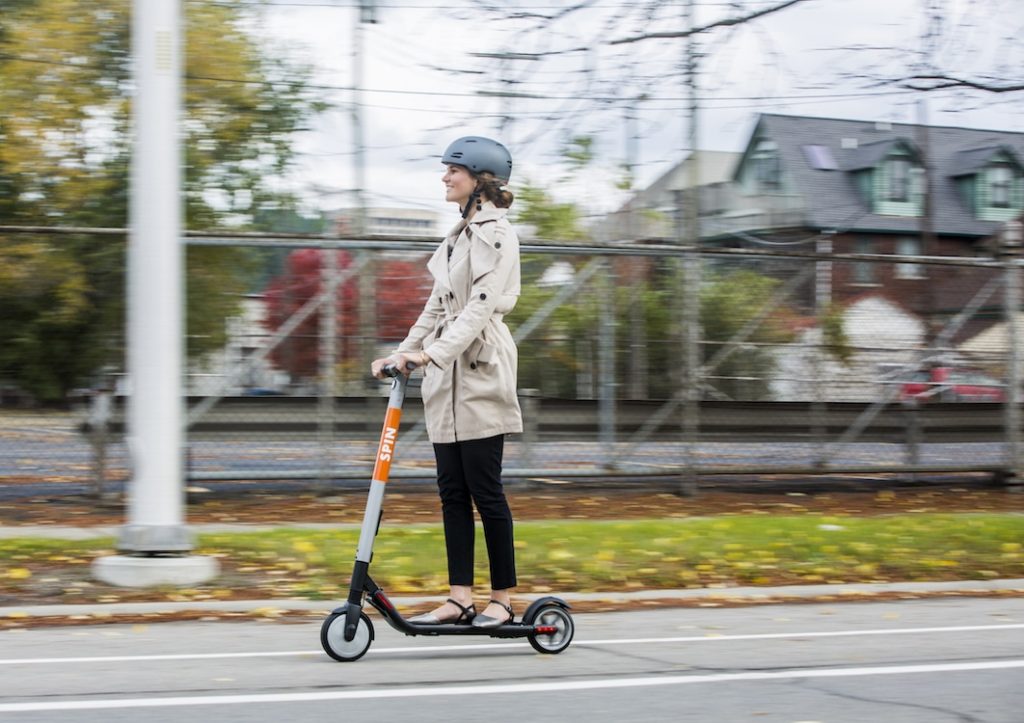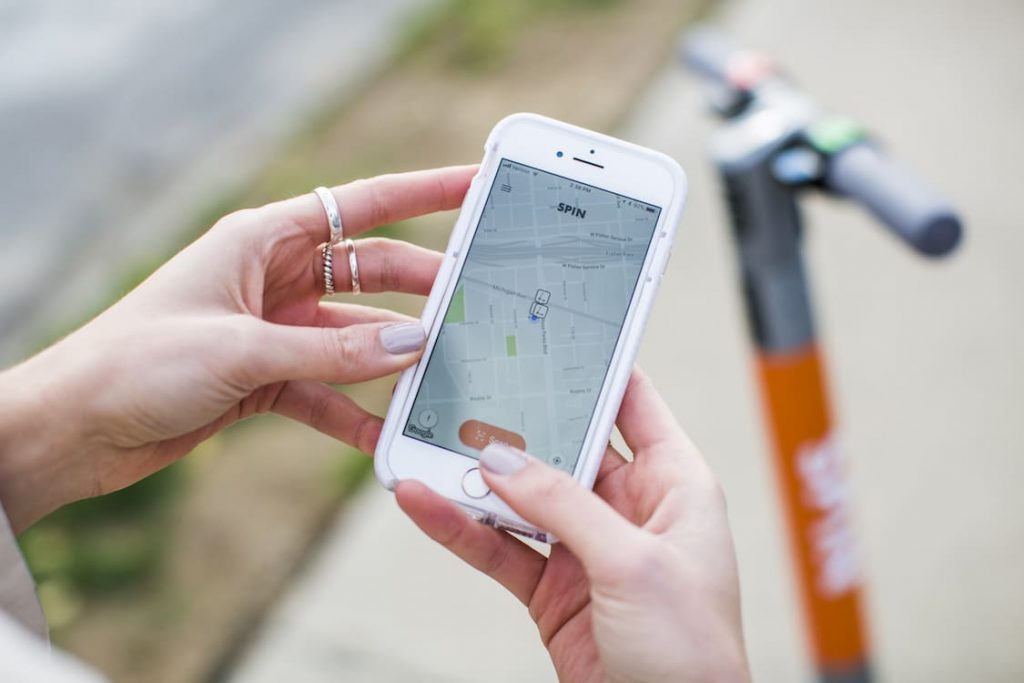Ford Motor Co. is reaching out to Silicon Valley again to produce a service it hopes consumers, especially younger ones who ride scooters, will find appealing.

The idea is to match up Spin, Ford’s micromobility unit, with Google Maps, giving customers a chance to plan an urban journey from start to finish by offering an e-scooter or e-bike for the final part of their journey.
In addition, the service offers users a way to find Spin e-scooters and e-bikes for the “last mile” of travel in 84 towns and cities in the United States, Canada, Germany and Spain. Ford is already one of the largest providers of short-term use e-scooters and e-bikes and its network is expected to grow.
Using Google Maps expands options
Plans call for Google Maps to deliver, in real-time, information about the nearest available Spin e-bike or e-scooter, including how long it will take to walk to the vehicle, as well as the estimated battery range and expected arrival time. Users will then be directed to the Spin app to pay for the vehicle, unlock it and take their ride, according to Spin executives.
“With this integration, Spin is making it easier for millions of Google Maps users to easily incorporate shared bikes and scooters into their daily trips,” said Spin CEO Ben Bear. “Our goal is to make it as low friction as possible for consumers to plan multi-modal journeys.

“It needs to be just as easy, and even more convenient to get around with bikes, buses, trains, and scooters as it is with a personal car. This collaboration with Google is our biggest platform integration yet with many more in the pipeline.”
Micromobility aims at delivering customers to specific place
The idea animating the venture is that “micromobility,” which utilizes electric scooters and bikes, will grow in the future to become a mainstream transportation solution for those living in urban areas or on university campuses.
The Mobility as a Service, or MAAS, ventures attracting the interest of urban planners and investors are being built around e-scooters and e-bikes, also offering journey-planning platforms. This set up enables residents and visitors to use a multimodal approach to get around crowded urban areas.
Bear said the integration of Google Maps comes on the heels of Spin’s recently being added to a few global and regional journey-planning platforms, such as City Mapper, Moovit, Transit and Kölner Verkehrs-Betriebe or KVB, in Europe where mobility as a service is emerging as significant business opportunity.







